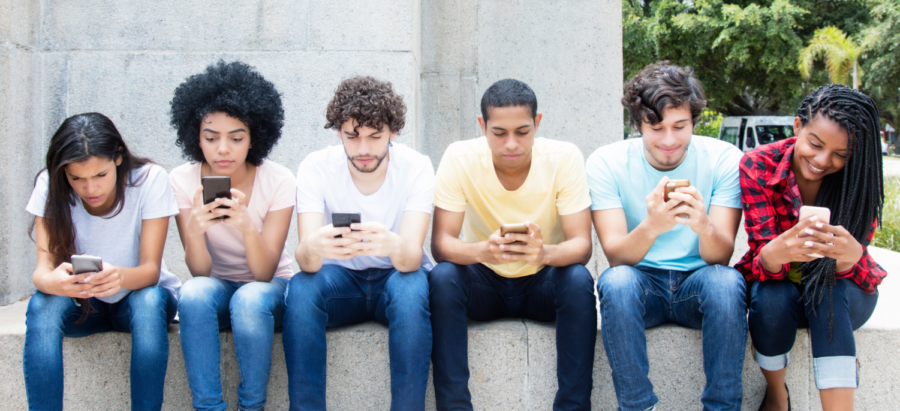School Cell Phone Ban Sparks Diverse Opinions
January 27, 2022
On January 5th, Klein Collins administration enforced a new cell phone policy that has students enraged. The new initiative was brought on by concerns among staff and teachers about cell phones being a distraction. This new policy only allows students to use phones before and after school, in passing periods, and at lunch.
“I’m sure that it’s beneficial for students to be without those phones so that the students can focus more, be more engaged in the lesson,” Counselor Nicole Demby said.
Last semester, teachers noticed that phones were a big distraction during classroom lectures. However, some teachers noted that phones have also been used for educational purposes such as taking notes, using Quizlet, or interviewing others in journalism class.
“A lot of people depend on their phones, and I feel the idea of “You don’t need your phone” doesn’t apply to everything,” senior Valeria Hernandez said. “You don’t really need a lot of things, but we’ve learned to be dependent on it. And it helps with a lot of things, and it makes a lot of things easier.”
If a student is caught with a phone, they are “red-carded,” meaning that they are given a red card and sent to their Assistant Principal’s office to turn in their phone. Students can pick up their phones free of charge at the end of the school day.
“First of all, it’s more of a distraction to leave your class if you get caught. Second, if you forget your phone, and you’re missing the bus, then you’re in trouble and maybe your parents can’t come pick it up right away,” senior Rasheed Ramsingh said.
For emergencies or personal problems, students can use the teacher’s classroom phone or parents can call the front office to contact their child. This policy says the phone must be completely concealed and put away during classroom instruction time.
While the policy brought initial upset and rage among students, many have found new ways to use free time in the classroom such as socializing or reading a book. This policy is being greatly enforced and will stay in place indefinitely.








